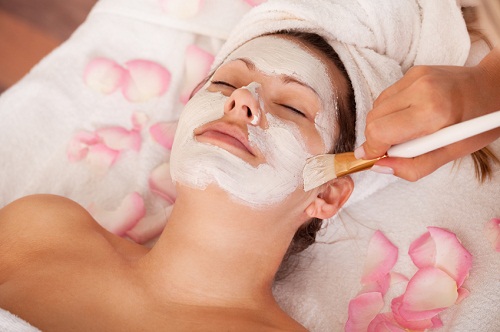Bentonite clay is commonly used in cosmetics and skin care products because of its cleansing and rejuvenating qualities. By using this clay topically you will see noticeable results for various skin conditions such as acne, rashes, eczema, and wounds. Bentonite clay is one of the most effective ingredients for homemade face masks.
How Bentonite Clay Works
Bentonite clay draws excess oil and impurities to the surface of your skin and unclogs pores by removing dead skin cells. It also has the ability to draw out poison from insect bites and stings. Its antibacterial qualities help speed up the healing process while increasing the flow of blood and circulation.
An effective exfoliant, bentonite clay leaves dull looking skin feeling softer and more radiant, and it minimizes fine lines, sun damage, and age spots, leaving you with healthier and younger-looking skin.
How to Use Bentonite Clay Masks
To start with it’s recommended you use the Bentonite clay mask daily for the first 2 weeks, then cut back to twice a week.
Some people may notice skin conditions such as acne will appear to be worse before it begins to improve. Don’t be alarmed! This is a normal reaction and it simply means the bentonite is working. Remember that it needs to remove the toxins from the skin before it can start to repair, and this is why you will notice this “backwards” step. In some cases your face may be a little red once you remove the mask, and this is also completely normal.
Four Bentonite Clay Facial Recipes
1. Basic Bentonite Clay Facial
This facial treatment will help to relieve itchiness and help dry up blisters.
• 2 tablespoons Bentonite clay
• 2 tablespoons water
Mix ingredients together to form a smooth creamy paste. If required add extra water or clay to achieve desired consistency. Leave mask on until the clay has completely dried. Remove clay with warm water and gently dry skin.
2. Healing Facial
If you’re suffering from pimples or boils then this facial is for you!
• 1 tablespoon Bentonite clay
• 1 teaspoon baking soda
• 1 teaspoon oatmeal
• 1 tablespoon water
• Few drops tea tree oil or calendula oil
Follow basic facial directions and apply to affected area.
3. Cleansing Facial
This clay mask will help cleanse your skin, removing built up dirt, and leave it feeling revitalised and fresh.
• 2 – 3 tablespoons Bentonite clay
• 2-3 tablespoon apple cider vinegar
Follow basic facial directions followed by application of moisturiser
4. Customised Facial
You can create your own customised clay facial treatment to find a recipe suited to you and your particular skin type. You will need 2 tablespoons of Bentonite clay for the base of any recipe. You will then need a liquid substance equating to 1 ½ tablespoons to create a smooth paste. Try out these alternative natural ingredients:
• Rosewater
• Green tea
• Jojoba oil
• Almond oil
You can also experiment with a variety of essential oils by adding a few drops for aromatic and natural benefits.
Bentonite clay is a fantastic ingredient to use in your own homemade face mask, but my favorite is avocado. Avocados hydrate the skin without adding too much oil, and they’re great for clearing acne, too. If the above bentonite clay face mask recipes aren’t for you, then try this avocado face mask recipe instead and see if it works for your skin type.
Photo credit: iStockPhoto.com/AndreyPopov


